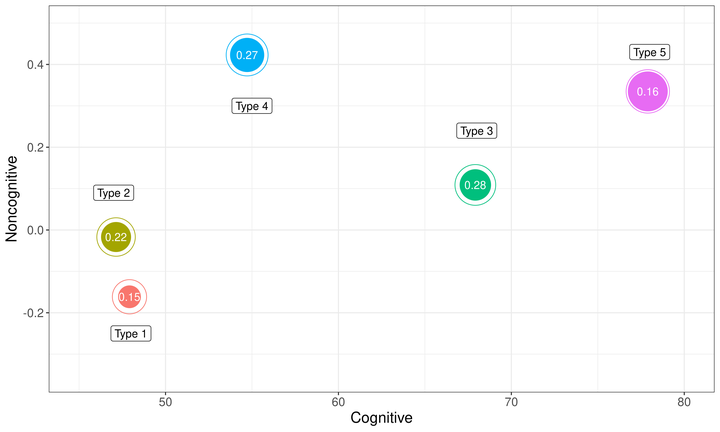Hetergeneous returns to higher education
 College graduate (hollow circle) and non-graduate (filled) wages by type, arranged in cognitive (x-axis) and non-cognitive (y-axis) ability space. The value-label in white is the graduate wage premium in percentage terms. This data for this plot is females in the BCS1970.
College graduate (hollow circle) and non-graduate (filled) wages by type, arranged in cognitive (x-axis) and non-cognitive (y-axis) ability space. The value-label in white is the graduate wage premium in percentage terms. This data for this plot is females in the BCS1970.Recent work has highlighted the differing returns that individuals from different social groups experience following a university degree. Combining these insights into the heterogeneity in returns to higher education with insights on the technology of skill formation from another important recent literature, we estimate the wage returns to a university degree along a fundamental dimension: prior human capital. Employing a novel methodology exploiting recent advances in the identification of mixture models, we group individuals by their prior human capital and identify and estimate the wage returns to a university degree by group. Applying our method to data from a UK cohort study, our findings reflect recent evidence that skills and ability are multidimensional.